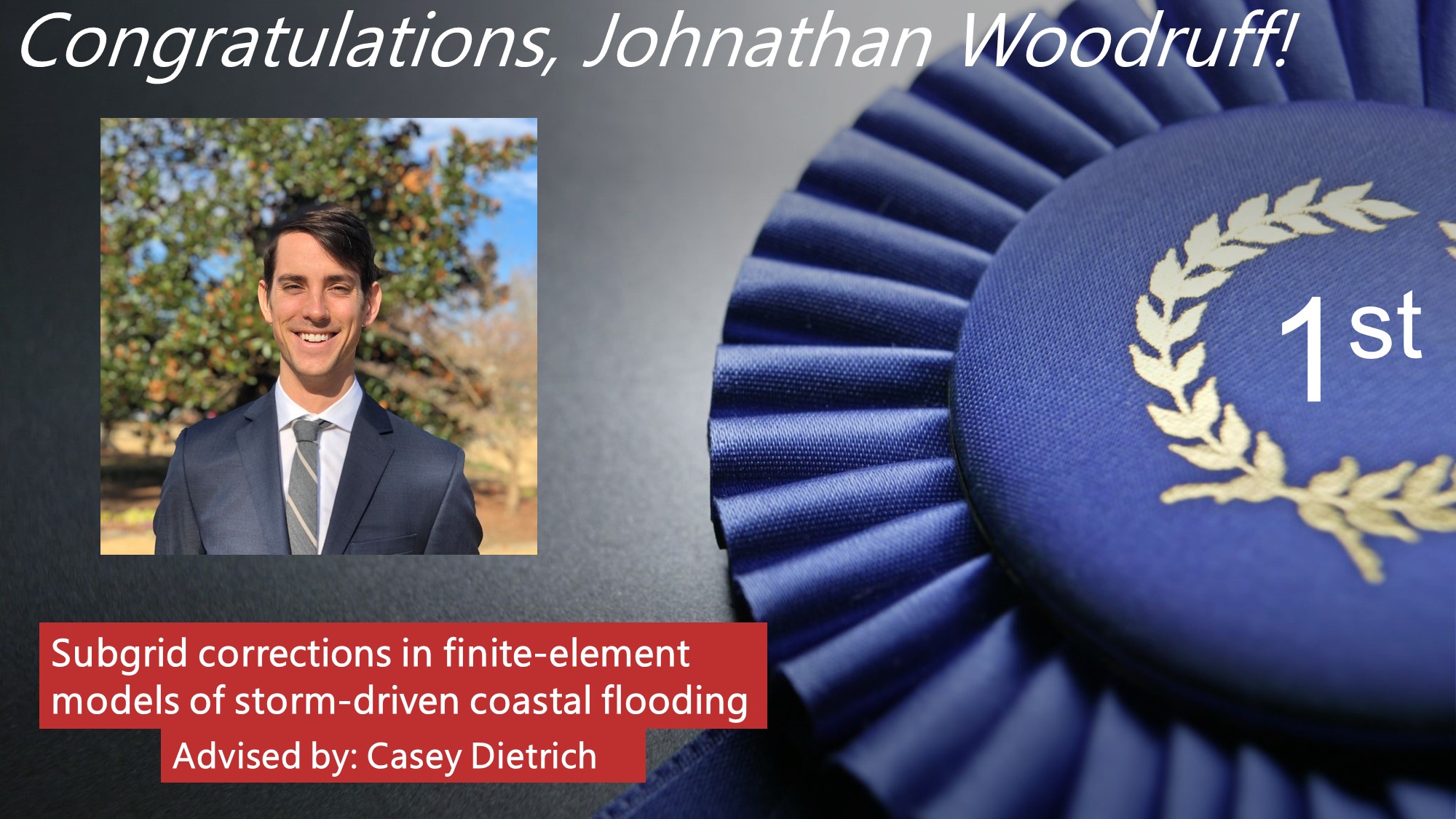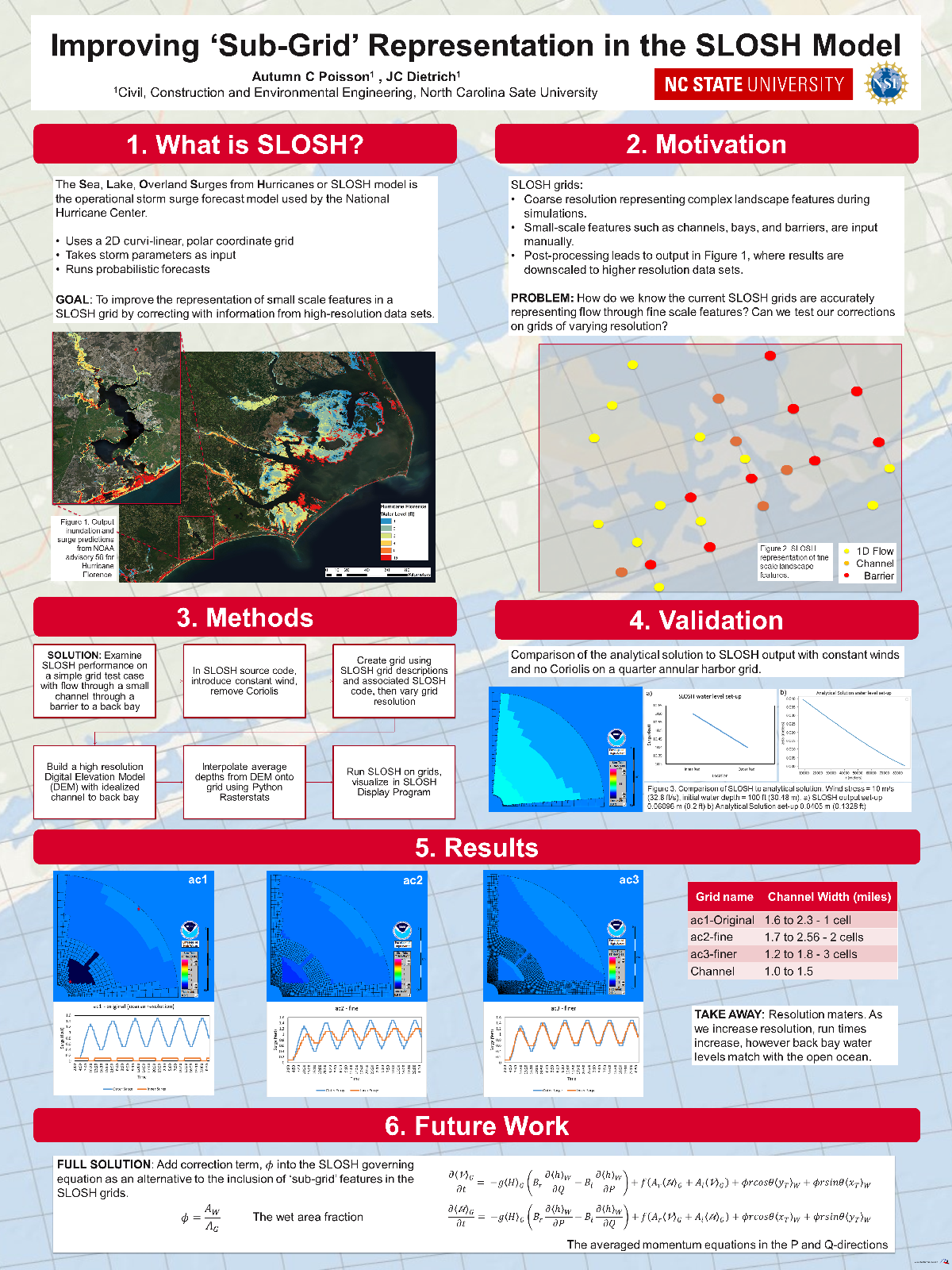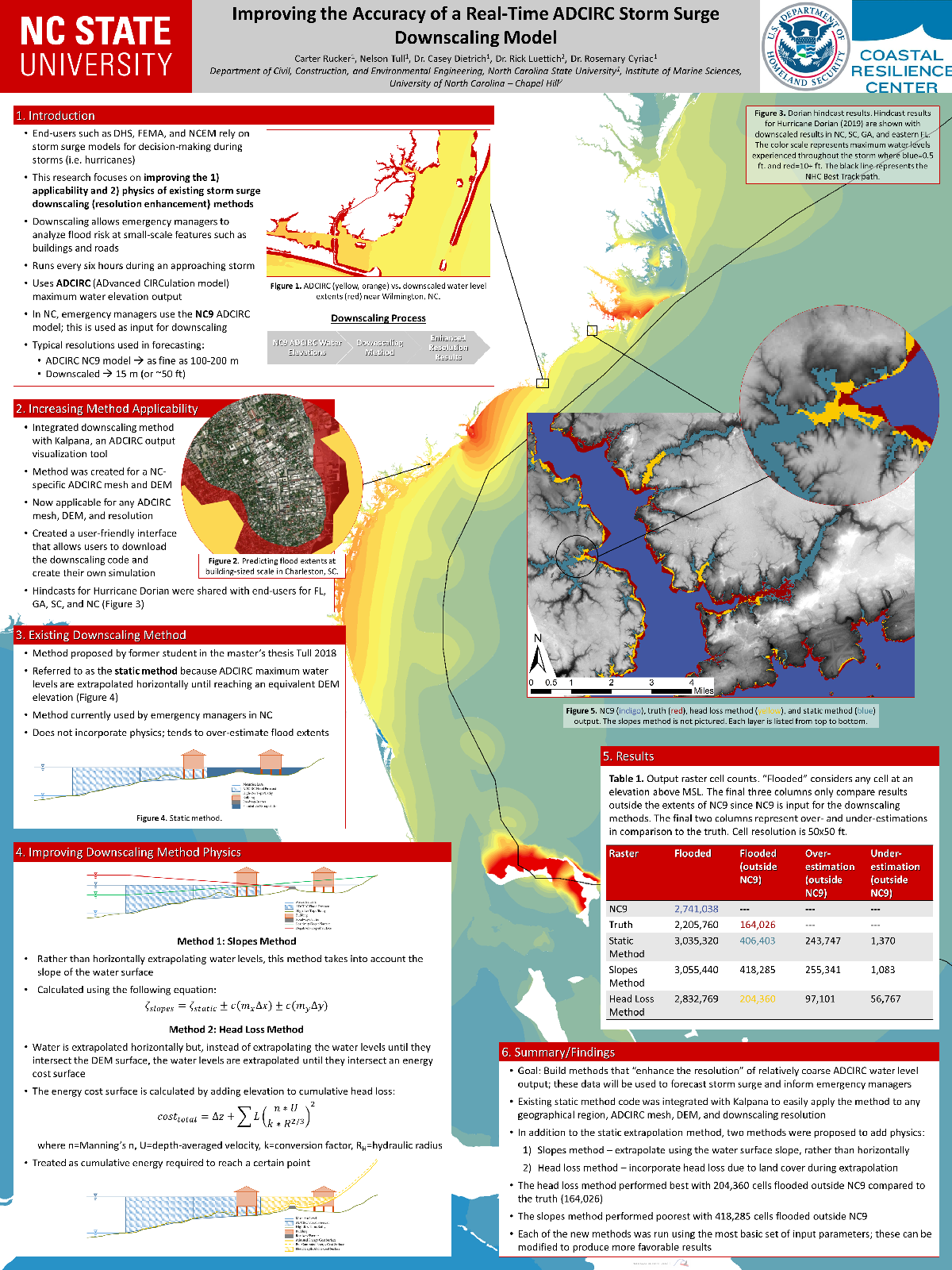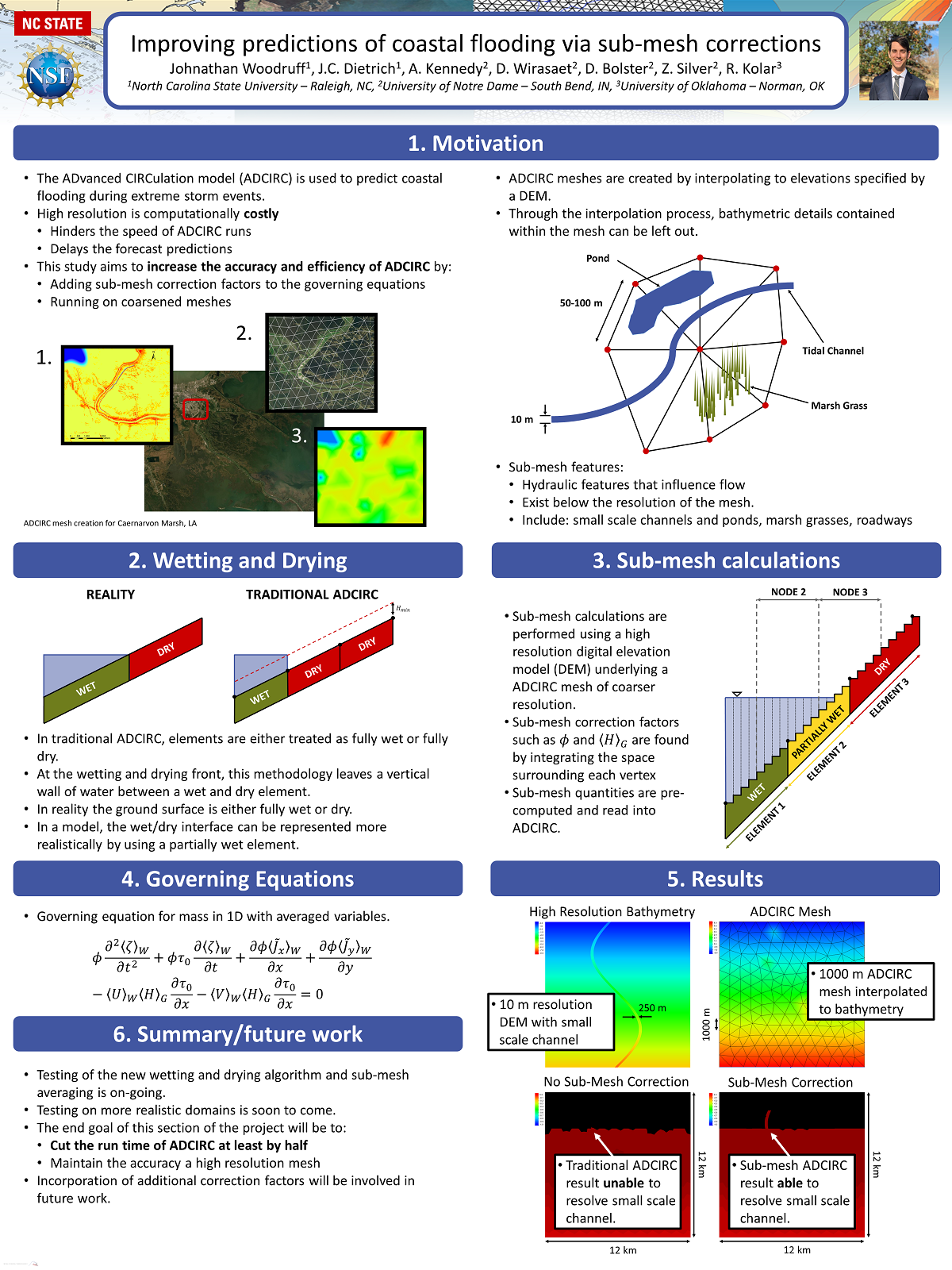Author Archives: jlwoodr3
Conference: EWC Symposium 2022
Conference: ASBPA Coastal Conference 2021
Virtual Conference: USNCCM 2021
Proposal Defense: Johnathan Woodruff
Johnathan wins First Place in Student Presentation Competition
Ph.D. student Johnathan Woodruff won first place in the student presentation competition during the annual Environmental, Water Resources, and Coastal Engineering Research Symposium. This award is chosen by judges from among all of the student presentations and is reflective of both compelling research activities and excellent presentation skills. The award includes a $500 cash stipend.

Congratulations to Johnathan!

CCHT Ph.D. student Johnathan Woodruff.
Virtual Conference: EWC Symposium 2021
Posters: EWC Symposium 2020
A Poisson, JC Dietrich “Improving ‘sub-grid’ representation in the SLOSH model.” Environmental, Water Resources, and Coastal Engineering Research Symposium , North Carolina State University, 6 March 2020.
CA Rucker, N Tull, JC Dietrich, R Luettich, R Cyriac. “Improving the accuracy of a real-time ADCIRC storm surge downscaling model.” Environmental, Water Resources, and Coastal Engineering Research Symposium , North Carolina State University, 6 March 2020.
JL Woodruff, JC Dietrich, AB Kennedy, D Wirasaet, D Bolster, Z Silver, RL Kolar. “Improving predictions of coastal flooding via sub-mesh corrections.” Environmental, Water Resources, and Coastal Engineering Research Symposium, North Carolina State University, 6 March 2020.




